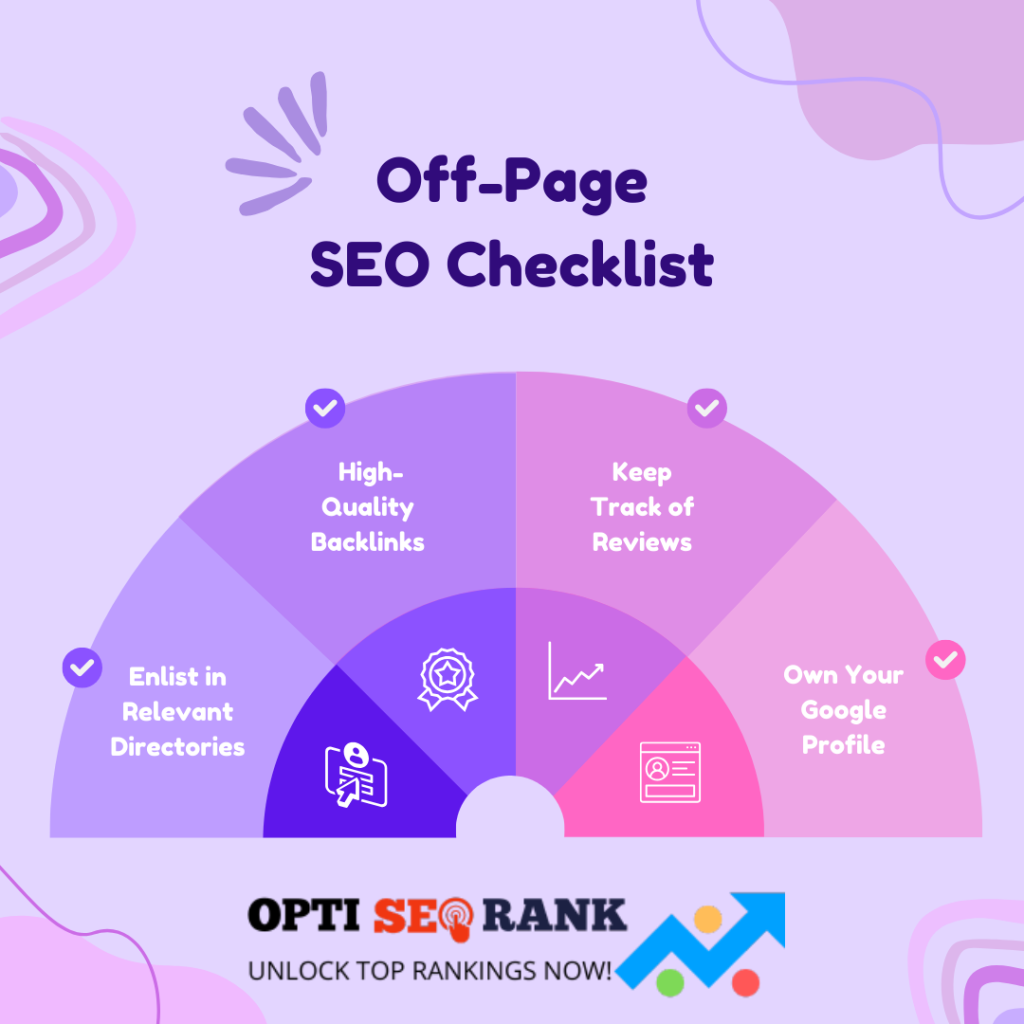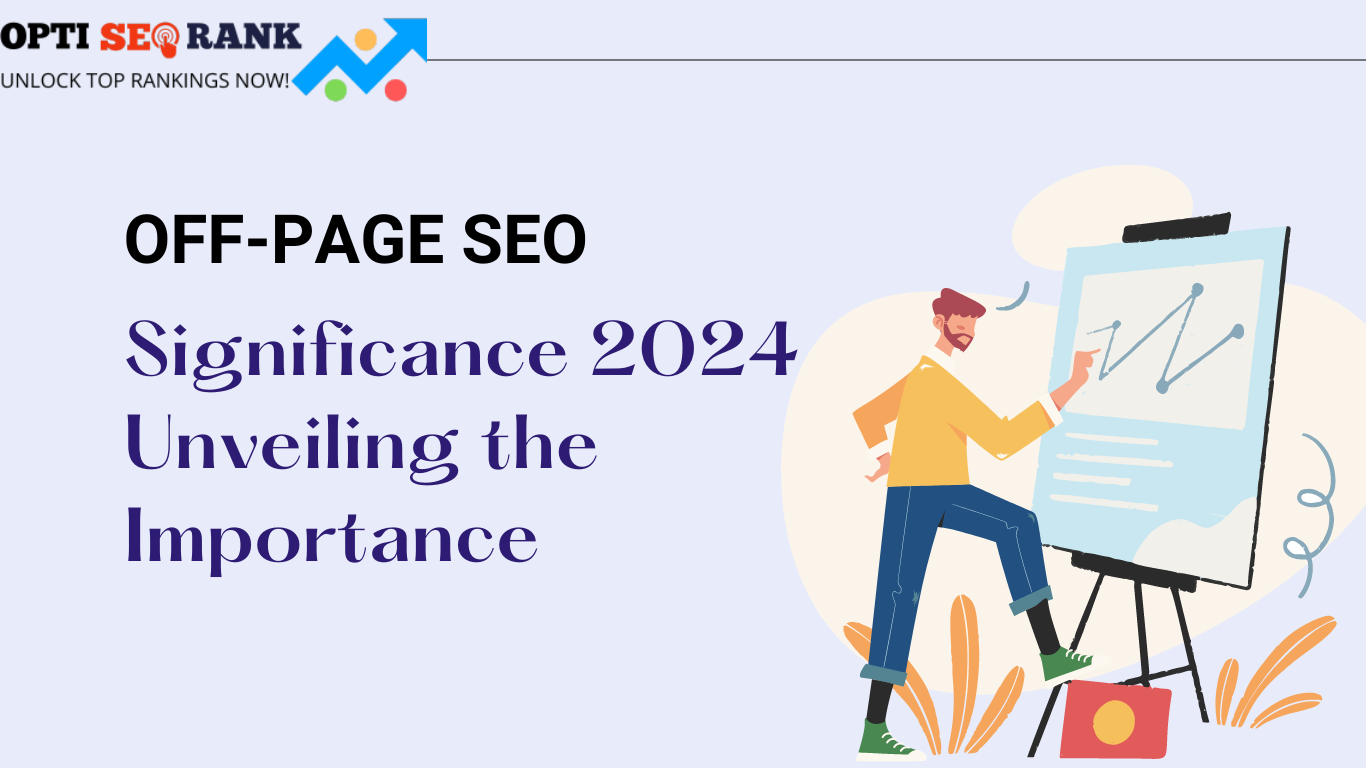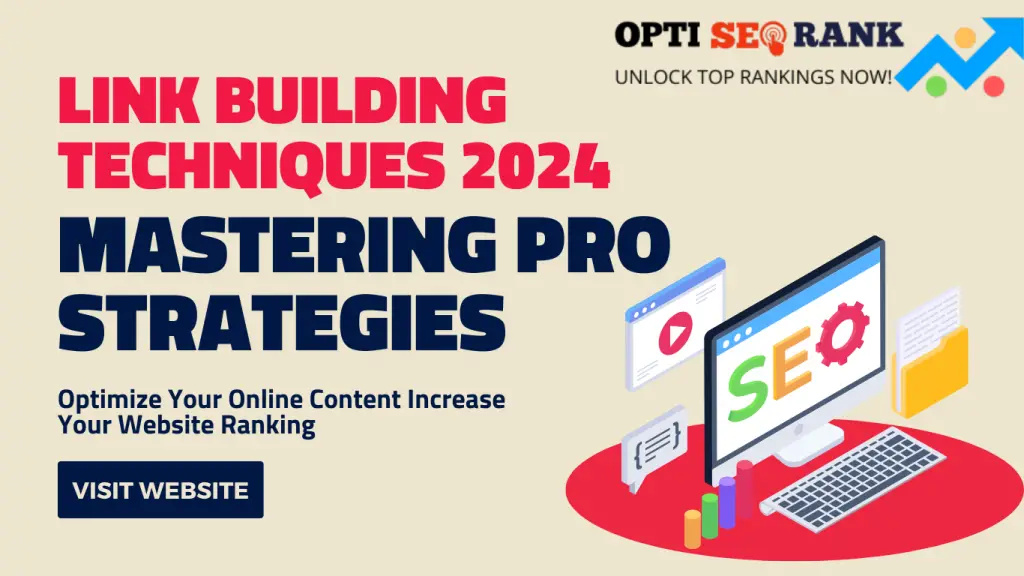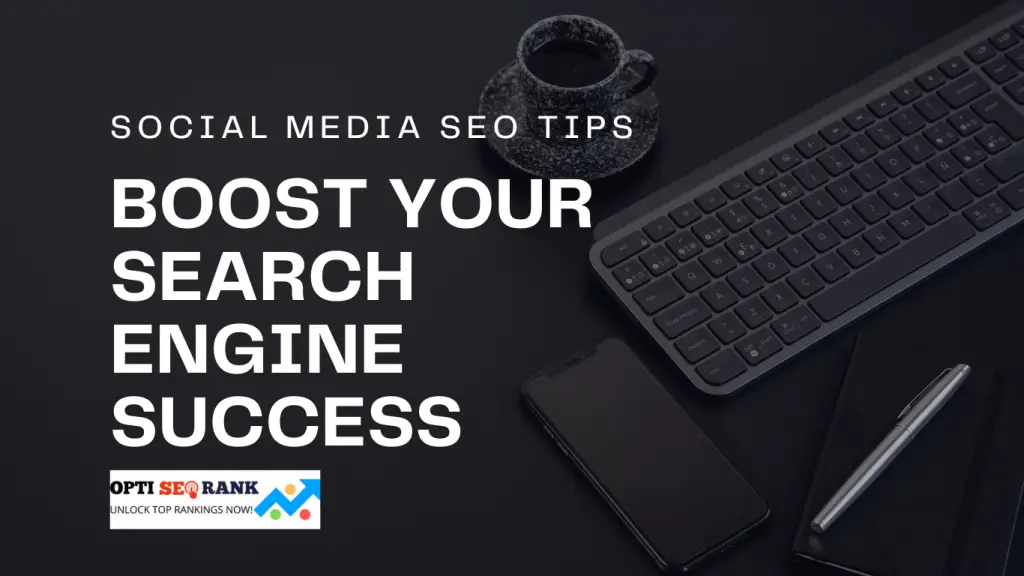Off-page SEO strategies can significantly boost your website’s rankings. They focus on building backlinks, social signals, and online reputation.
Unlocking success in the digital landscape involves more than just optimizing on-page elements. Off-page SEO strategies play a crucial role in enhancing your site’s visibility and authority. These techniques include acquiring high-quality backlinks, engaging with social media platforms, and managing your online reputation.
Building a robust off-page SEO strategy can lead to improved search engine rankings, increased organic traffic, and better overall online presence. Understanding and implementing these strategies can set your website apart from the competition and drive sustainable growth. Focus on creating valuable content, fostering relationships, and maintaining a positive online image to see significant results.
Introduction To Off-page Seo
Unlocking success in search engine rankings involves more than on-page efforts. Off-page SEO plays a crucial role. It refers to actions taken outside your website. These actions impact your site’s position in search engine results.
Importance Of Off-page Seo

Off-Page SEO helps search engines understand your site’s popularity. It builds your site’s authority. Here are some key benefits:
- Increased Search Engine Rankings: Search engines rank trusted sites higher.
- Better Online Reputation: Quality backlinks improve your site’s credibility.
- More Traffic: Higher rankings attract more organic visitors.
Difference Between On-page And Off-page Seo
| On-Page SEO | Off-Page SEO |
| Focuses on optimizing individual web pages. | Involves activities outside your website. |
| Includes keyword optimization and meta tags. | Includes backlinks and social media engagement. |
| Improves user experience on your site. | Builds your site’s authority and trust. |
Both are essential for a complete SEO strategy. On-Page SEO makes your site user-friendly. Off-Page SEO makes your site reputable. Combining both will skyrocket your rankings.
Building High-quality Backlinks
Unlocking the secrets of off-page SEO can skyrocket your rankings. One key strategy is building high-quality backlinks. These links from other sites boost your site’s authority and visibility. They signal to search engines that your content is valuable and trustworthy. Let’s dive into the essentials of creating these powerful backlinks.
Identifying Authoritative Sites
Finding the right sites to link to your content is crucial. Authoritative sites have a strong domain authority and relevant content. Use tools like Ahrefs or Moz to check a site’s authority score.
- Look for sites with a domain authority (DA) above 50.
- Ensure the site is relevant to your niche.
- Check the site’s traffic and engagement metrics.
Building relationships with these sites can amplify your backlink strategy. Reach out to site owners or editors with personalized messages. Offer something of value in return, such as guest posts or exclusive content.
Effective Link Building Techniques
There are several techniques to build high-quality backlinks. Here are some proven methods:
- Guest Posting: Write valuable content for authoritative sites. Include a link back to your site.
- Broken Link Building: Find broken links on high-authority sites. Offer your link as a replacement.
- Skyscraper Technique: Identify top-performing content in your niche. Create even better content and ask sites to link to it.
- Infographics: Design engaging infographics. Share them with relevant sites for a backlink.
- Testimonials: Write testimonials for products or services. Include a link to your site.
Use a combination of these techniques to diversify your backlink profile. Track your progress with SEO tools to measure the impact of your efforts.
Building high-quality backlinks takes time and effort. But the rewards are worth it. Your site will climb the search engine rankings and attract more organic traffic.
Leveraging Social Media
Social media can boost your off-page SEO efforts. It connects you directly with your audience. This direct connection can lead to higher engagement rates and more shares. Social media also helps in building brand awareness and trust. Here are some effective ways to leverage social media for SEO.
Engaging With Your Audience
Engagement is key on social media. Respond to comments and messages quickly. This shows you care about your audience. Ask questions to start conversations. Use polls to get opinions. Host live sessions to interact in real-time. Engaged users are likely to share your content.
Sharing Valuable Content
Share content that provides value to your audience. This could be blog posts, infographics, videos, or podcasts. Make sure the content is relevant and informative. Use eye-catching images to grab attention. Include clear calls-to-action to encourage shares and likes. Valuable content gets more engagement and boosts your SEO.
| Social Media Platform | Best Content Type | Engagement Tips |
| Videos, Images | Respond to comments, use polls | |
| Text, GIFs | Use hashtags, retweet valuable posts | |
| Images, Stories | Use eye-catching visuals, engage with followers | |
| Articles, Professional Updates | Share industry news, join groups |
To sum up:
- Engage with your audience through comments and messages.
- Share valuable content that is relevant and informative.
- Use different types of content for different platforms.
Influencer Partnerships
Unlocking the full potential of your off-page SEO can be the game-changer for your website’s rankings. One of the most effective strategies is leveraging influencer partnerships. Collaborating with influencers can drive traffic, enhance credibility, and boost your search engine rankings.
Finding The Right Influencers
Identifying the right influencers is crucial. Not all influencers will align with your brand values or target audience. Start by analyzing your audience demographics. Use tools like BuzzSumo and Followerwonk to find influencers in your niche.
| Criteria | Details |
| Relevance | The influencer’s content should align with your brand. |
| Engagement | High engagement rates are more valuable than follower count. |
| Authenticity | Genuine influencers have a loyal following. |
Check their follower engagement rates.- Review their previous partnerships.
- Analyze their content quality.
Creating Collaborative Content
Once you have identified the right influencers, the next step is to create collaborative content. This content should provide value to both your audience and the influencer’s followers. Consider different content formats like guest blogs, social media takeovers, or co-hosted webinars.
- Draft a content plan that outlines goals and expectations.
- Ensure the content is engaging and informative.
- Promote the content across all your channels.
Collaborative content can take various forms:
- Guest Blogs: Write a blog post for the influencer’s site.
- Social Media Takeovers: Let the influencer handle your social media for a day.
- Co-Hosted Webinars: Partner on a webinar to provide valuable insights.
Remember, the goal is to create a win-win situation. Both parties should benefit from the collaboration. This mutual benefit will ensure long-lasting relationships and continuous growth.
Guest Blogging
Guest blogging is a powerful off-page SEO strategy. It helps in building high-quality backlinks. It also enhances your online presence. You can reach new audiences through guest blogging.
Selecting The Right Platforms
Choosing the right platforms is crucial. Focus on websites related to your niche. Look for sites with good domain authority (DA). High DA sites offer better backlink value. Consider the audience engagement of the platform. High engagement means more visibility for your content.
| Criteria | Importance |
| Domain Authority (DA) | High |
| Niche Relevance | Very High |
| Audience Engagement | High |
Crafting Compelling Articles
Writing engaging articles is key. Aim to solve problems for the readers. Use simple language and short sentences. Incorporate target keywords naturally. Break content into small paragraphs.
- Use bullet points for clarity.
- Include relevant images and infographics.
- Link to reliable sources.
- Ensure your content is unique and valuable.
End with a strong call-to-action (CTA). Encourage readers to visit your website. This boosts traffic and improves your SEO.
Online Directories And Listings
Unlocking success with off-page SEO includes leveraging online directories and listings. These platforms boost your website’s visibility and authority. This section will explore how to choose relevant directories and optimize your listings effectively.
Choosing Relevant Directories
Not all directories are equal. Picking the right ones is crucial. Here’s how to select the best online directories:
- Industry-specific directories: List your business in directories specific to your industry.
- Local directories: Local listings improve your local SEO and attract nearby customers.
- High-authority directories: Aim for directories with high domain authority to boost your site’s credibility.
Use a table to compare potential directories:
| Directory | Domain Authority | Category Relevance | Local Focus |
| Yelp | 92 | General | Yes |
| Angie’s List | 85 | Home Services | No |
| TripAdvisor | 93 | Travel | No |
Optimizing Your Listings
Optimizing your listings ensures you get the most out of them. Follow these steps:
- Consistent NAP: Ensure your Name, Address, and Phone number are consistent across all directories.
- High-quality images: Add professional photos to attract more attention.
- Detailed descriptions: Write clear, keyword-rich descriptions of your business.
Important elements to include in your listings:
- Business hours
- Customer reviews
- Website URL
- Social media links
Example of a well-optimized listing:
{ "name": "Joe's Coffee Shop", "address": "123 Brew Street, Coffeeville", "phone": "(123) 456-7890", "hours": "Mon-Fri 8am-6pm, Sat-Sun 9am-5pm", "description": "Joe's Coffee Shop offers the best coffee in town with freshly baked pastries.", "images": ["url-to-image1.jpg", "url-to-image2.jpg"], "reviews": ["Great coffee!", "Lovely atmosphere!"], "website": "http://joescoffeeshop.com", "social": { "facebook": "http://facebook.com/joescoffeeshop", "twitter": "http://twitter.com/joescoffeeshop" } }
Forum And Community Engagement
Forum and community engagement is an essential off-page SEO strategy. It helps build authority and drive traffic to your website. By actively participating in niche forums and communities, you can establish your brand as a thought leader. This helps in creating valuable backlinks, which in turn boosts your search engine rankings.
Joining Niche Communities
Start by identifying forums and communities relevant to your industry. Look for active groups where people discuss topics related to your niche. Use keywords to find these communities.
- Register on the forum with a professional username.
- Complete your profile with a link to your website.
- Introduce yourself and state your expertise.
Participate in discussions regularly. This helps build your presence and credibility. Always follow the forum rules and guidelines.
Providing Expert Insights
Share valuable information and insights to help community members. Answer questions with detailed and accurate information. This demonstrates your expertise.
- Write clear and concise answers.
- Include relevant statistics or data to back up your points.
- Use bullet points to make your answers easier to read.
Engage with other experts in the community. This can lead to collaborations and partnerships. Your consistent activity will earn you trust and respect.
Make sure to include your website link where appropriate. This can drive traffic and improve your SEO rankings. Remember, quality over quantity; provide useful insights rather than just posting links.
Monitoring And Analyzing Results
Effective off-page SEO strategies require continuous monitoring and analysis. Tracking your results helps you understand what works. This way, you can make necessary adjustments to improve your rankings.
Tracking Backlink Performance
Backlinks are crucial for SEO success. Use tools like Ahrefs or SEMrush to track your backlinks. These tools show the quality and quantity of backlinks. You can see which backlinks are driving the most traffic.
Consider using a table to track key metrics:
| Metric | Value |
| Total Backlinks | 500 |
| Referring Domains | 120 |
| Backlink Quality Score | 80% |
| Traffic from Backlinks | 3000 visitors/month |
Adjusting Strategies Based On Data
Data-driven decisions are key to improving your SEO. Analyze the data from your backlink tools. See which backlinks are underperforming. Remove or disavow low-quality backlinks.
Here are some steps to adjust your strategy:
- Identify underperforming backlinks.
- Reach out to high-quality sites for new backlinks.
- Update your content to be more link-worthy.
- Monitor changes and repeat the process.
By adjusting your strategies based on data, you can ensure continuous improvement. This will help in skyrocketing your rankings.
Frequently Asked Questions
1. What is off-page SEO, and how does it differ from on-page SEO?
Off-page SEO refers to optimization activities performed outside of your website to improve its search engine rankings. This includes link building, social media marketing, guest blogging, and influencer outreach. On-page SEO, on the other hand, involves optimizing elements within your website, such as content, meta tags, and internal links. Off-page SEO focuses on building a website’s authority and reputation, while on-page SEO enhances content relevancy and technical SEO aspects.
2. How do backlinks impact off-page SEO rankings?
Backlinks play a crucial role in off-page SEO by acting as “votes of confidence” for your site from other websites. High-quality, relevant backlinks signal to search engines that your content is valuable, authoritative, and trustworthy. The more authoritative sites link back to your pages, the better your chances are of ranking higher in search engine results, ultimately increasing organic traffic.
3. Can social media activity improve off-page SEO?
Yes, social media can indirectly improve off-page SEO by driving traffic to your website and increasing brand visibility. Although social media links are typically “no-follow,” which means they don’t directly pass SEO value, strong social media engagement can lead to more shares, exposure, and potential backlinks from authoritative websites, all of which boost off-page SEO performance.
4. What is the role of influencer marketing in off-page SEO?
Influencer marketing enhances off-page SEO by leveraging influencers’ audiences to promote your content or brand. When influencers share or link to your website, it can result in quality backlinks, increased traffic, and social signals, all of which contribute to improved search engine rankings. Collaborating with credible influencers in your niche can greatly amplify your off-page SEO efforts.
5. How do online reviews and local citations contribute to off-page SEO?
Online reviews and local citations are important for improving a website’s trustworthiness and authority, especially for local SEO. Positive reviews on platforms like Google My Business, Yelp, and industry-specific directories build credibility and influence potential customers. Local citations—mentions of your business’s name, address, and phone number (NAP) on various websites—improve your local search rankings by reinforcing your presence in a specific area. Both reviews and citations enhance your off-page SEO profile, making your site more authoritative.
Conclusion
Mastering off-page SEO can elevate your website’s rankings. Employ link building, social media engagement, and influencer partnerships. These strategies boost your online presence and drive organic traffic. Start implementing these techniques today to see measurable improvements in your SEO efforts.
Success is just a few strategic steps away.



